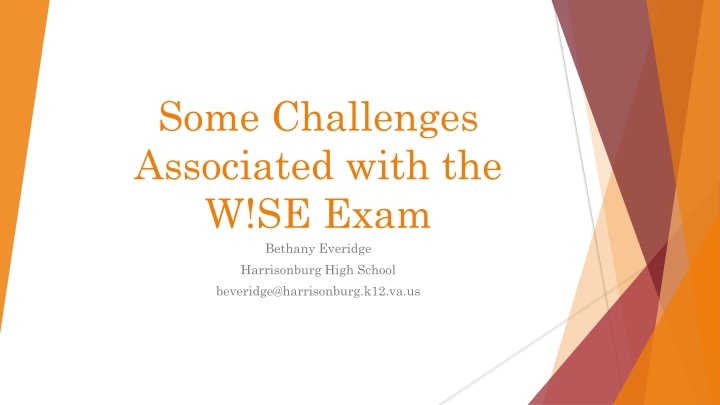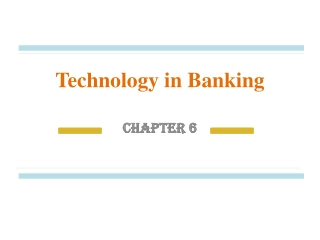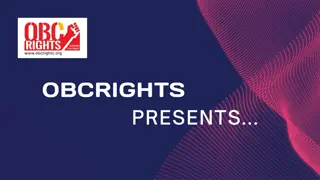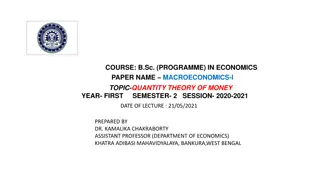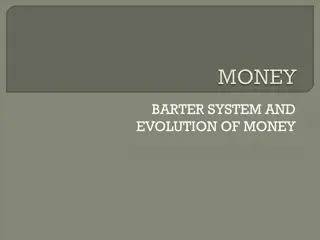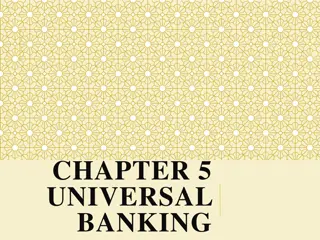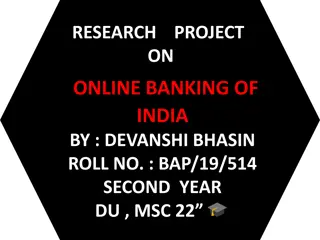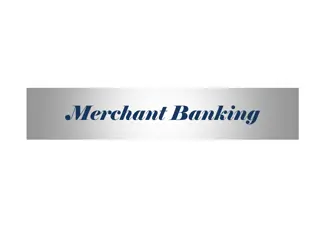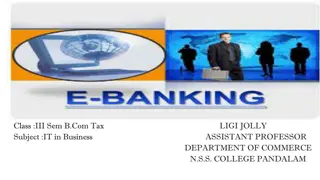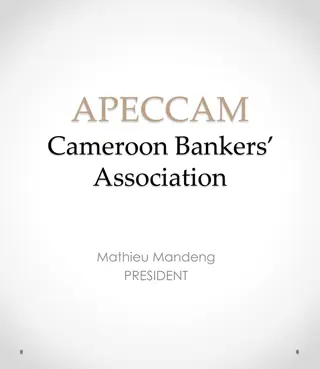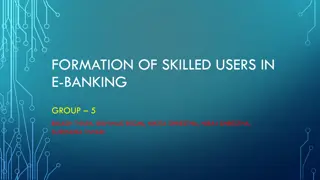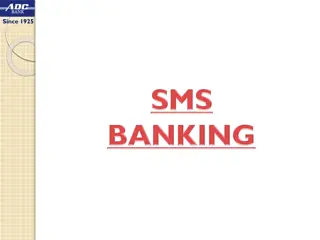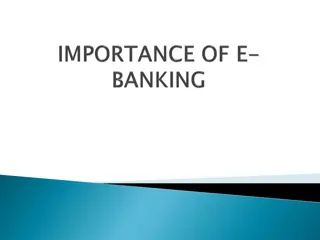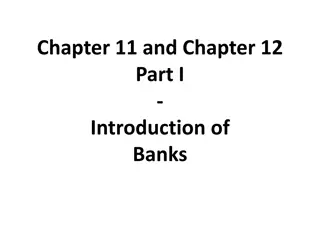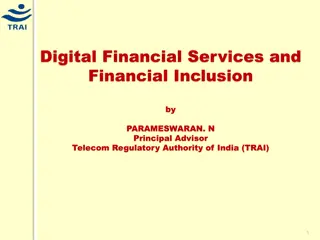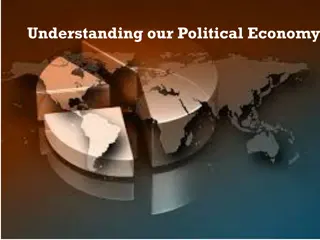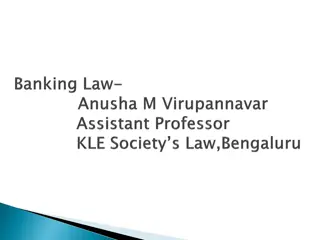Financial Literacy Essentials: Challenges, Vocabulary, Banking, & Money Management
Explore the challenges, vocabulary, banking examples, and money management insights in this comprehensive guide to financial literacy. Learn about protecting yourself from identity theft, setting effective financial goals, understanding savings accounts, checking accounts, certificates of deposits, and more.
Download Presentation

Please find below an Image/Link to download the presentation.
The content on the website is provided AS IS for your information and personal use only. It may not be sold, licensed, or shared on other websites without obtaining consent from the author.If you encounter any issues during the download, it is possible that the publisher has removed the file from their server.
You are allowed to download the files provided on this website for personal or commercial use, subject to the condition that they are used lawfully. All files are the property of their respective owners.
The content on the website is provided AS IS for your information and personal use only. It may not be sold, licensed, or shared on other websites without obtaining consent from the author.
E N D
Presentation Transcript
Some Challenges Associated with the W!SE Exam Bethany Everidge Harrisonburg High School beveridge@harrisonburg.k12.va.us
Vocabulary Tier 1 Tier 2 Tier 3 Increased Understanding and Success
Banking Example Two Example One Sarah is practicing the pay yourself first model. What does this mean she must do each month? As a result of putting your money in a bank you are automatically protected by what agency? A. Before paying money bills, Sarah automatically puts $50.00 into her savings account. A. Securities Exchange Commission (SEC) B. Federal Deposit Insurance Corporation (FDIC) B. Pays her monthly bills and then puts $50.00 dollars in her savings account. C. U.S Treasury Department C. Sarah should put money in her savings account when possible. D. Consumer Financial Protection Bureau (CFPB) D. Reward herself first by going to a movie and dinner.
Focus Items for Banking What are the differences between savings accounts, checking accounts, and certificates of deposits? Which is most liquid? What does liquid mean? Why is it a better idea to put your money in a certificate of deposit account rather than a savings account? Compare banks and credit unions. What is a predatory lender? Lending = loan What is the relationship between overdraft protection and insufficient funds? ATM withdrawals and ATM fees What must happen if you withdrawal money from an ATM and are charged money for that withdrawal? What is direct deposit and why is it a good thing?
Money Management Example One It is recommended to protect yourself from identity theft you should: A. Avoid sharing any personal documents and shred the ones you no longer need. B. Use the same password for all accounts and share with only close friends. C. Share your social security number with close friends and relatives. D. Use only cash for any purchase you make. Example Two Effective financial goals should: A. Be based solely on one s needs for the current year. B. Have target dates for achievement. C. Be approved by a financial advisor. D. Be discussed and approved by a bank.
Focus Items for Money Management What factors are considered when you want to borrow money for a home? What if there are two applicants? (Combined Income) Why might a person s budget change? How does inflation affect people? Buying power discussion/activity. What is the difference between gross pay and net pay? How is gross pay determined? How is net pay determined? What are some types of retirement plans? What should you do if you have a retirement plan and change jobs? What are other sources of income for someone who is retired?
Credit Example 1 Example 2 George is given a $50.00 gift card to Olive Garden. George loses the gift card, what should George do? A. Report the lost gift card to the police in order to receive a new gift card. B. Go to Olive Garden and ask for a new gift card. C. George has actually lost $50.00 since he has no proof of purchase. D. Ask his friend to purchase him another gift card. John has a 797 credit score. John should know that? A. He will need a cosigner in order to obtain a loan. B. Has a excellent credit score and can shop around for credit opportunities. C. Has a high credit score and cannot shop around for credit opportunities. D. Has an excellent credit score and will receive loan offers with high interest rates.
Focus Items for Credit How do banks and credit card companies decide how much interest to charge a particular customer? How are student loans different from other loans? What happens if you only pay the minimum payment on a credit card every month? What is the Truth in Lending Act? What a mortgage loan? What are some qualities of an individual who would have an excellent credit score? What is an excellent credit score?
Insurance & Investing Insurance Example: What factors does an automotive insurance company consider when determining how much to charge for coverage? Investing Example: Why do companies sell stocks? A. To increase competition. B. To expand ownership of the company. A. The ethnic background of the driver. C. To comply with the Securities and Exchange Commission requirements. B. How many previous automotive claims the individual has made in the past five years. D. To raise money for expansion. C. If the driver is required by law to wear eye glasses. D. The number of passengers that will be driven around in the vehicle.
Investing and Insurance Focus Areas What does a stockbroker do? How does someone become a stockbroker? What is the relationship between risk and possible profit? What is the relationship between premiums and deductibles? What are the differences between whole life and term life insurance? What is a capital loss vs. a capital gain? What is a bull market vs. a bear market? When an individual is looking to purchase a life insurance policy, what things should they consider?
Final Thoughts or Questions?
